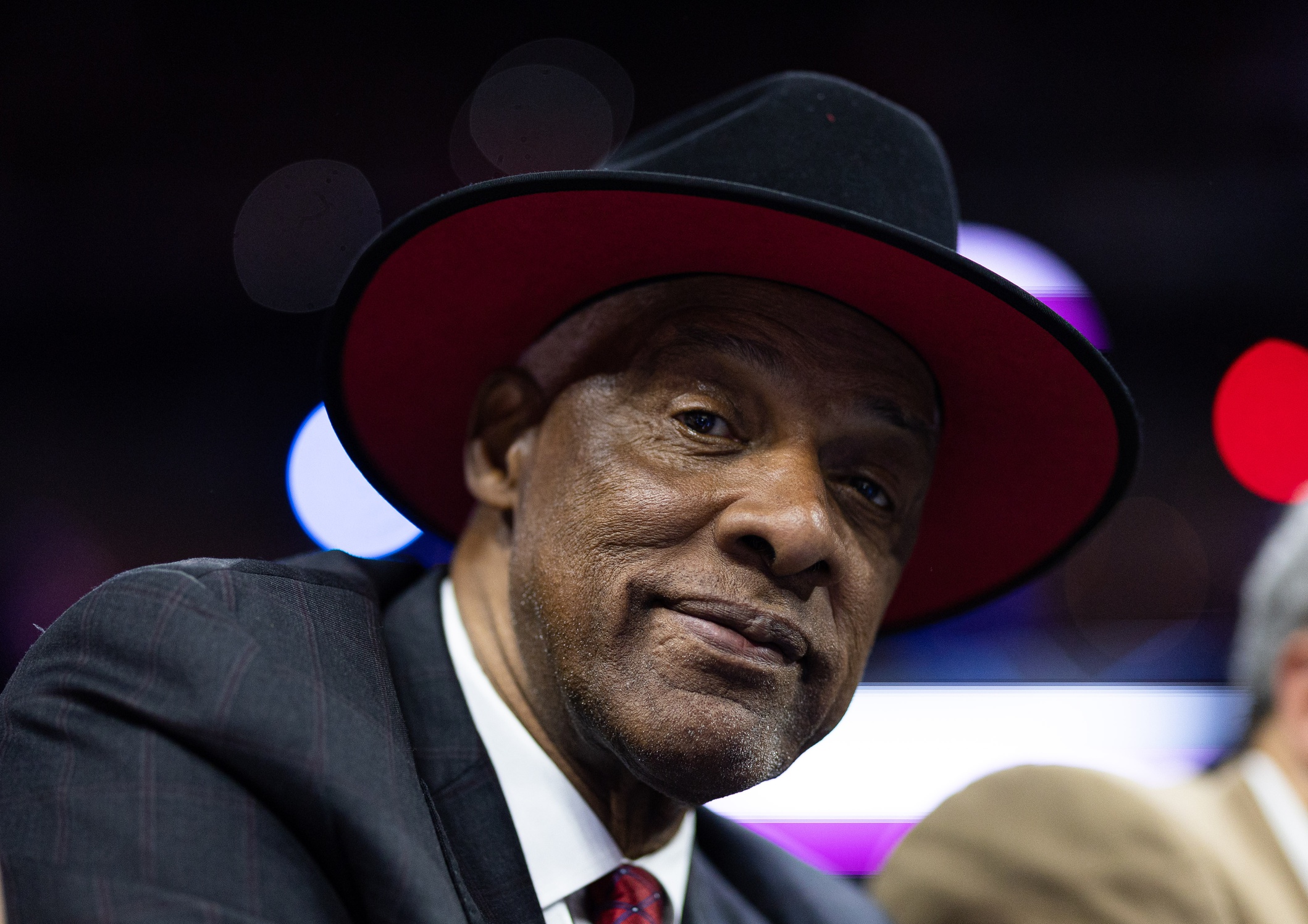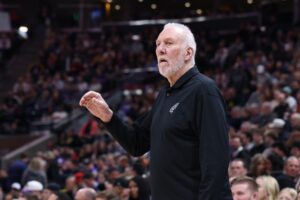In an era of super teams, legend Julius Erving does not share the same liking to this movement as modern NBA Players. In reality, is Erving right?
Julius Erving: Is He Right about Super-Teams?
His Critique
Erving did not hold anything back when asked about the new era of the NBA. More specifically, he critiques star player Kevin Durant and his mobility. Irving explains how “They (stars) have not helped the game and they have not helped to keep the parity within the game when you build these super teams… Look at how many times [Kevin] Durant has hopped around.” Erving further explains that this mobility from players “is not good for the game.” Therefore, he sees the league heading in the wrong direction because of what players like Durant and LeBron James did.
"They have not helped the game and they have not helped to keep the parity within the game when you build these super teams… Look at how many times [Kevin] Durant has hopped around."
Julius Erving on NBA stars changing teams 👀
(via @joydeangela)pic.twitter.com/MMn5O9uIqW
— ClutchPoints (@ClutchPoints) July 28, 2023
Is Erving Right?
Pros of Super Teams
There are a few pros to think about with super teams. The first is that it generates a lot of revenue for the NBA. The average NBA player’s salary was almost $10 million last season. Super teams allow the viewership to rise because people become fans or haters for that particular team. Top players in the league go to super teams, and the league generates more profit.
Another pro is that this movement created more savvy general managers. They move assets around to acquire top-level players to compete for a championship. Again, it creates a better chance to win and allows the teams to make more money with greater fan attendance. General managers need smarter decisions and allocate their resources towards getting stars onto their teams to compete in this NBA climate.
Cons of Super Teams
Based on the pros, it may seem that Erving is wrong. However, there are cons to examine. The first is that it destroys the competition. The new super team movement makes a select number of NBA teams competitive and limits the success of the smaller markets. Smaller markets do not generate the same amount of money to bring in talented players, so their ability to compete gets squashed by more super teams in larger markets. More fans watch teams in bigger markets anyways, so smaller markets get left in the dust with the continuation of this movement.
Additionally, there are a small number of loyal players. When players got drafted in the 80s and 90s, more of them stayed on their teams because they had an obligation to win for their franchise. Think about the Chicago Bulls, the Showtime Los Angeles Lakers, or the Boston Celtics; their stars stayed on those teams and won championships. Now, players rarely remain on their teams and bounce around from one team to the next to try and win. More importantly, the lack of player movement limits the development of rivalries and hurts a feud between cities and their fans.
Looking At His Top 10 List, Is It Crazy?
Dr. J also gave his top ten list and looked at it as an out-there list. For starters, he explained how his list is based on players who finished their careers. Nevertheless, he does not have players like Larry Bird, James, Stephen Curry, or even Kobe Bryant. His list is looking at his era and appreciating it based on the players he put on there. However, he understands that haters will not like his list.
Unfortunately, his list is different. He put players on there that are never considered in most top-ten lists. Tiny Archibald and Karl Malone are some players to name. He does not realize that Bird, Curry, James, and Bryant all had more significant impacts on the game and the direction of the NBA. His list is different, but it is also Dr. J, so people will give it thought because he is an incredible NBA player and basketball mind.
The Last Word on Erving
Erving made headlines for his remarks about super teams and his top ten list, but he makes a point about super teams. They may have generated more money for the players but destroyed team loyalty and competition.






